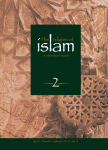The Religion Of Islam vol.2

Chapter XXVI - Degrees of Authenticity
of The Narrators
The associates of the Prophet, and those persons who lived immediately after them used to relate, with the exception of the Koran, the sense of the Prophet’s word in their own language, unless they had to use some phrases containing prayers, or when they had to point out to others the very words of the Prophet. It is natural to suppose that deeply learned persons would themselves understand and deliver to others the sense of the sayings better than persons of inferior grade, and they, therefore, have been divided into seven grades:
- Persons highly conspicuous for their learning and legal acquirements, as well as for their retentive memory. Such persons are distinguished by the title of Imâms of hadîth, i.e. leaders or grand scholars of tradition.
- Persons who, as to their knowledge, take rank after the first, and who but very rarely committed a mistake.
- Persons who as to their knowledge still rank after the first and the second, but respecting whose integrity and honesty there is no doubt.
- Persons respecting whom nothing is known.
- Persons who have made alterations in the pure religion of the Prophet, and, actuated by prejudice, have carried them to extremes.
- Persons who are pertinaciously skeptical, and have not a retentive memory.
- Persons who are notorious for inventing spurious traditions.
Learned divines are of opinion that the traditions related by persons of the first three classes should be accepted as genuine and reliable, according to their respective merits, and also that traditions related by persons coming under the three last classes should be at once rejected; and that the traditions related by persons of the fourth ([1]) class (i.e. Úä “from”) should be passed over unnoticed so long as the narrator remained unknown.
[1])) As regards the introduction from of Úä “from”, the following gives an example: -
if A says that he had heard from B and B says he had heard from C and leaving several names in the middle, says that X heard from the prophet. There are, however, exceptions in a narration of this kind. If the narrator was a known companion of the Prophet, his narration, even if the chain was broken, had been accepted by some theologians.
